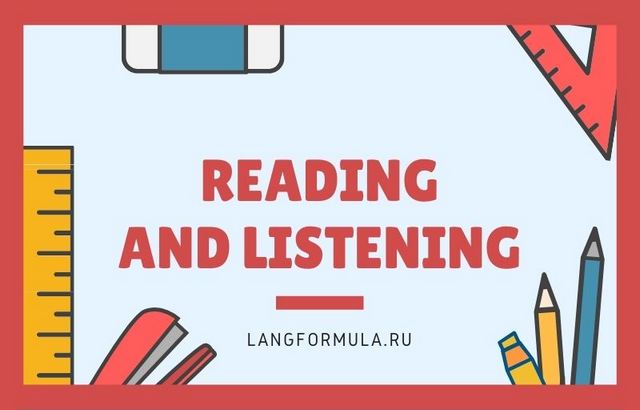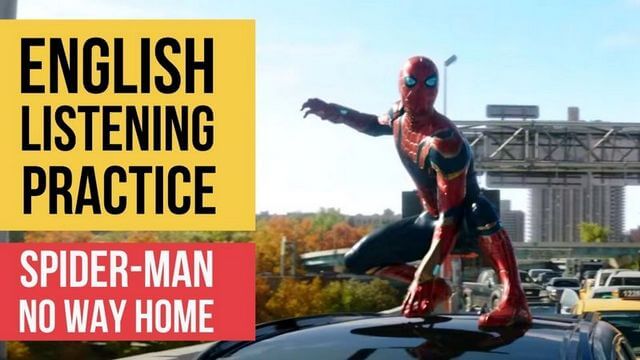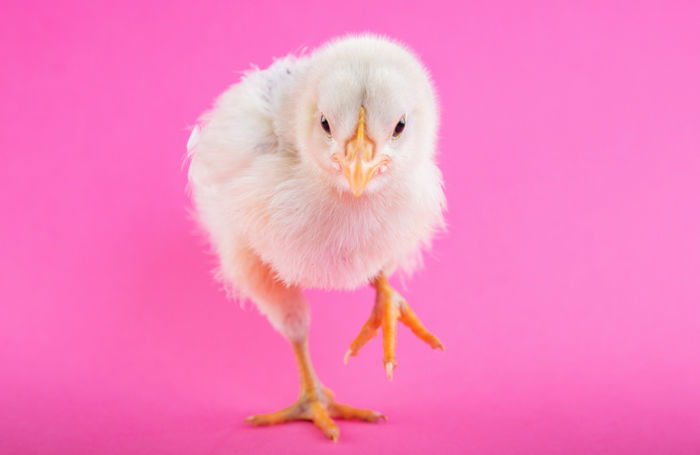какой нибудь английский текст
Тексты на английском с переводом на русский
Наши авторские тексты для чтения и перевода помогут сразу в нескольких аспектах практики и изучения английского языка: грамматика, расширение лексического запаса, запоминание контекста использования оборотов, слов и идиом. Независимо от вашей подготовки вы найдете здесь упражнения для эффективных занятий.
Каждый наш текст можно читать на английском и русском, соответственно, переводить можно в две стороны. Плюс к сложным местам даны подсказки.
Мы предлагаем авторский контент — это не машинный перевод и не скопированные из открытого доступа отрывки, а составленные и переведенные специалистами английские тексты для чтения и перевода, что очень важно для обучения и качественной практики.
Тексты для начинающих
Простые тексты на английском языке для начинающих A1 — Beginner и A2 — Elementary отличаются легкостью лексики, тем и грамматических оборотов.
Для эффективной практики английского на топиках и рассказах этой категории достаточно знать элементарные правила построения предложений, простые времена и от 300 слов.
Тексты среднего уровня
Тренировочные тексты на английском для среднего уровня сложности A2/B1 — Pre-Intermediate до B1 — Intermediate и B2 — Upper-Intermediate) посвящены более разнообразному списку тем. Конструкции посложнее, лексика богаче.
Чтобы справиться с ними, нужно знать около 1 000 слов, неправильные глаголы, азы грамматики английского и основные времена.
Сложные тексты на английском
В этой категории собраны самые сложные тексты на английском для читателей с уровнями C1 — Advanced и C2 — Proficiency по классификации CEFR. Вас ждут редкие идиомы и фразовые конструкции, профильные темы, большое разнообразие стилистики.
Для работы с материалами нужно в совершенстве знать грамматику и синтаксис и от 4 000 слов (как часто употребляемых, так и профессиональных и специфических).
Тексты на английском языке для чтения
В этом разделе вы найдете тексты на английском языке с переводом и аудио. Это тексты как для начинающих, так и для тех, кому нужны задания посложнее. Начинающим я рекомендую легкие тексты с переводом. Если ищете что-то посложнее, попробуйте позаниматься по текстам из фильмов.
Вот, какие тексты есть в этом разделе:
- Топики, сочинения на английскомЛегкие тексты на английском для начинающихДиалоги, сцены из фильмов + текст с переводом
Материалов пока не очень много, но раздел постоянно дополняется.
Топики, сочинения, тексты на английском языке
Тексты на темы, которые часто используют в школах на уроках английского языка: рассказ о себе, сочинения на тему разных стран, топики о праздниках и т. д. Все тексты — с переводом и аудио. Топики распределены на группы: тексты «о себе» и тексты о странах, образовании, обществе.
Рассказываем о себе и своей жизни
Тексты «о себе». Тема «About Myself — Рассказ о себе на английском языке» (наиболее востребованная из таких тем) вынесена в отдельную статью с советами и примерами.
Страны, праздники, образование
Сочинения на тему разных стран, культур, обычаев, системы образования в разных странах.
Общество
Тексты на английском на темы, связанные с обществом, его развитием, проблемами современного общества.
Легкие тексты на английском языке для начинающих (чтение и аудирование)
Это не школьные топики, а адаптированные тексты для начинающих на разные темы — простые короткие тексты на английском с очень простой грамматикой. Единственную трудность могут вызывать слова по определенным темам, но так как все простые тексты даны с переводом, вам не о чем беспокоиться.
Тексты даются с аудио — их можно использовать как для чтения, так и для аудирования.
Диалоги на английском языке из фильмов + видео (чтение и аудирование)
Отрывки из фильмов с субтитрами и без (чередуются в особом порядке). Материалы в этой рубрике рассчитаны в первую очередь на аудирование. Но поскольку они сопровождены расшифровкой текста, это также и неадаптированные тексты для чтения. В основном, это диалоги, в некоторых роликах — монологи.
Эти же материалы вы найдете в разделе «Английский по фильмам».
Тексты на английском языке с переводом
При изучении английского языка важно уделять внимание различным аспектам деятельности: читать, переводить, изучать лексику, слушать, говорить. Несмотря на то, что следует постоянно чередовать занятия, крайне важно обратить внимание на английские тексты различных уровней сложности.
Для начинающих (Beginners — Elementary)
Если вы только начали знакомство с иностранным языком, читайте тексты, которые вы уже ранее читали на русском языке. Обратите внимание на небольшие рассказы или сказки. Также можно слушать адаптированные книги на английском языке: в этом случае вы сможете тренировать слуховой аппарат и оттачивать восприятие текста на слух. Где можно найти тексты для начинающих? Загляните на сайт Британского Совета, где вы сможете читать один и тот же текст, написанный для различных уровней владения языком. Узнать свой уровень вы можете здесь.
Finding somewhere affordable to live in Britain is hard. Some parts of the country are cheaper than others, of course, but the cost of renting a home is horrendous, especially in London and the South. Normally, the only answer is to share a house or a flat: you get a room of your own, but you have to share the kitchen and bathroom. In cities like Oxford and Cambridge, where rooms are scarce, prices will make your eyes water: more than £500 a month. In London, they’re even higher – not far off £700.
Oxford already seemed expensive when I lived there, and that was almost 40 years ago. When I started work after university, my room cost £40 a month – almost 15 per cent of my salary. With today’s rents in Oxford, you’d need to earn £40,000 a year if you didn’t want to spend more than 15 per cent on your room. But when you finish university, starting salaries are usually between £20,000 and £30,000.
Apart from the cost, shared flats and houses are often in poor condition. Landlords are slow to spend their profits on repairs. I was fairly lucky with mine. The house I lived in was scruffy, but the landlord took action when needed — like the time the bathroom ceiling fell in. I’d just run a bath and had returned to my room to get something, when I heard a loud crash. I went back to find the bathtub full of wet plaster. I had the ceiling repaired and took the bill to my landlord.
Показать перевод
Показать перевод
Оксфорд казался дороже, когда я жил там, а это было практически 40 лет назад. Когда я начал работать в университете, моя комната стоила 40 фунтов стерлингов в месяц – почти 15% от моей зарплаты. С сегодняшними ценами на аренду, вам нужно зарабатывать 40 000 в год, если вы не хотите тратить более 15% дохода на свою комнату. Но когда вы оканчиваете университет, начальные зарплаты обычно колеблются от 20000 до 30000 фунтов стерлингов.
Кроме стоимости жилья, совместные комнаты или дома часто находятся в плохих условиях. Владельцы неохотно тратят свой доход на ремонты. Мне с моим хозяином повезло. Дом, в котором я жил, был в запущенном состоянии, но хозяин принимал участие, когда это было нужно – как тогда, когда обрушился потолок. Я хотел набрать ванну и вышел в свою комнату, чтобы что-то взять, когда я услышал громкий треск. Я вернулся и обнаружил ванную полную штукатурки. Крышу починили, и я отнес счет своему хозяину.
Для продолжающих (Pre-intermediate — Intermediate)
Чтение английских текстов – это не только возможность обогатить себя новыми знаниями, но и получить представление о структуре английского предложения, сленговых выражениях и в целом о современной речи. Ведь часто бывает так, что изучая язык в школе, мы понятия не имеем о том, что некоторые слова уже употребляются совершенно в других значениях, а другие и вовсе рождаются на наших глазах и пополняют словарь английского языка новыми лексическими единицами, ранее не существовавшими. Ученые отмечают, что уже через 5-7 лет появятся такие профессии, о которых мы сегодня ничего не знаем. Ниже вы можете ознакомиться с художественным текстом. Обратите внимание на структуру предложений и лексику.
Are you ready for this, Amy?” David asked his daughter. The girl finished tying the laces of her old walking boots, looked up and nodded slowly. “I think so.” They walked along a lane out of the village until they reached a gently winding path that led to the river. After crossing a wooden bridge, they followed the line of the riverbank, where tall trees kept the hot sun off their heads. David listened to the chatter of the fast-flowing river. The last time they had come this way, he had listened to a chattering stream of words from his daughter, who had told him about endless adventures and the scandals of friends and classmates. Today, as they had crossed the bridge, a little grey and yellow bird had caught her eye. Amy’s face had brightened, and the start of a story almost reached her lips, but then she remained silent. The path became steeper, leaving the river and splitting into two parts as they came closer to Kinder Reservoir. Looking at his map, David pointed to the route that climbed above the reservoir. They followed it to the start of a narrow valley, where another steep path ran beside a fast-moving stream. As they climbed higher, Amy began to notice the changing landscape. The stream was a series of little waterfalls that fell through green ferns and purple heather.
Показать перевод
Показать перевод
Intermediate — Upper-intermediate
As 24-year-old American girls with backpacks, Sally and I rarely had to wait long for a ride. And although we often couldn’t understand the drivers, it didn’t matter. Wherever they were going was fine with us. Other than our plans to visit the Oktoberfest in Munich, we had absolutely no itinerary. The advantage of this easygoing lifestyle was that we visited many villages that were far off the beaten path.
Показать перевод
Показать перевод
Для продвинутых (Advanced)
Recently, I’ve been flying quite a lot — for the usual reasons, like holidays, weddings, milestone birthdays and, sadly, the odd funeral. Since I live in Perth, Western Australia — a very isolated state capital – a flight to the east coast means at least four hours in the air for me. To put that into a European perspective, a flight to Sydney is about the same as flying from Dublin to Istanbul. Then there’s the time difference of two to three hours, so that a whole day is lost crossing the country. When I’m sky-high, I’m captive to what I call “cardboard-box cuisine”. Recent experiences with our major carriers Qantas and Virgin suggest that there may be more flavour in the box itself than its contents.
Sure, Australian airlines have a long tradition of offering free food and drinks, including beer and wine, especially on longer flights. And flying is relatively inexpensive in economy class. Even on the good airlines, I can usually get to and from Sydney for less than A$ 700. Budget carriers will cost you half of that. Back to airline food, though. On a flight to Perth some weeks ago, I was given a “Chinese chicken salad” for my evening meal. In the box, I found a mound of dry purple cabbage and a dozen small pieces of equally dry chicken. There was no dressing, so the only parts of this meal I could eat were two cracker biscuits and a piece of cheese that came on the side. I washed them down with a tiny bottle of red wine and thought, “This meal isn’t free: it’s worthless.” Some time later, I wandered down to the flight attendants’ quarters at the back of the plane to see if I could get some more cheese and crackers and another small bottle of wine. The staff were helpful, but what surprised me were the meals they were eating, including a steaming plate of grilled pork medallions in cream sauce with rice and fresh vegetables.
Показать перевод
Показать перевод
Скачать готовые тексты
Готовые тексты по английскому языку можно найти на специализированных сайтах или же в журналах и газетах для изучающих иностранный язык. Обратите внимание, что к тексту часто идут задания для закрепления материала, а новая лексика выделяется другим цветом.
Статьи выше и другие тексты вы можете скачать по данной ссылке.
Адаптированные книги (Abridged books)
Начинающим изучать английский язык следует как можно скорее начинать работать с текстами. Во-первых, такой вид деятельности помогает запомнить не просто слова, а целые выражения. Во-вторых, работая с текстами, вы сможете быстрее начать составлять целостные предложения, опираясь на полученный опыт.
Как понять, подходит ли вам конкретный текст? Если количество незнакомых слов достигает 15-20%, то этот текст вы вполне сможете осилить. Если же вам постоянно приходится обращаться к словарю за переводом, то лучше оставить данный текст до лучших времен, чтобы окончательно не растерять желание изучать английский язык.
Обратите внимание на адаптированные книги на английском языке, тексты в которых распределены по различным уровням сложности [смотрите на Ozon.ru]. В самых простых из них используются от 200 до 350 слов, в то время как для уровня pre-intermediate или intermediate используется в среднем 3500 слов. Отметим, что зная такое количество лексики, вы свободно сможете общаться на любые темы при условии, что вы также знаете элементарную грамматику.
Параллельные тексты
В чем заключается смысл чтения параллельных текстов? На одной странице текст написан на английском языке и разбит на небольшие абзацы, на другой странице все организовано подобным способом, однако при этом вы читаете произведение на русском языке. Такой способ чтения подходит тем, кто начинает знакомство с иностранным языком, но хочет как можно скорее развивать навыки. Помните, что читая параллельные тексты, не всегда можно найти соответствующий перевод слова и фразы на странице с русским текстом, поэтому выделяйте для себя незнакомые слова и перепроверяйте их значение в словаре. Интересно, что Генрих Шлиман читал сначала текст на родном языке, а только после этого брался за неадаптированный текст на английском.
Этот метод подразумевает как плюсы, так и минусы, поэтому выбирать только вам. Использовать данный способ лучше на начальном этапе, пока вы не достигли уровня intermediate.
❤ Поделись статьей с друзьями! И подпишись на email-рассылку и Twitter. ❤
Илона Прошкина
Илона Прошкина Автор 46 статей в этом блоге.
Преподаватель английского языка и литературы. Круг интересов: двуязычие, бизнес-английский, сериалы на языке оригинала, английский для путешествий, обучение английскому языку онлайн, ESP, denglish, spanglish & globish, влияние английского языка на русскую речь.
Адаптированные тексты на английском по уровням сложности
В изучении английского языка очень важно постоянно читать. Чтение развивает понимание структуры языка и расширяет словарный запас. Специально для целей обучения издаются так называемые адаптированные тексты или рассказы, которые подходят под определенный уровень владения английским — начинающий (beginner), элементарный (elementary), средний (intermediate), выше среднего (upper-intermediate), advanced (продвинутый). Мы приводим примеры таких текстов c параллельным переводом.
Подробнее об уровнях владения английским языком вы можете прочитать в нашей статье, а также пройти диагностический тест.
Уровень A1 (Beginner)
Это базовый или начальный уровень изучения английского. Здесь самая простая грамматика и лексика, темы рассказов описывают простейшие бытовые ситуации и дают основную информацию о человеке.
My day
First, I wake up. Then, I get dressed. I walk to school. I do not ride a bike. I do not ride the bus. I like to go to school. It rains. I do not like rain. I eat lunch. I eat a sandwich and an apple.
I play outside. I like to play. I read a book. I like to read books. I walk home. I do not like walking home. My mother cooks soup for dinner. The soup is hot. Then, I go to bed. I do not like to go to bed.
Our Vacation
Every year we go to Florida. We like to go to the beach. My favorite beach is called Emerson Beach. It is very long, with soft sand and palm trees. It is very beautiful. I like to make sandcastles and watch the sailboats go by. Sometimes there are dolphins and whales in the water!
Every morning we look for shells in the sand. I found fifteen big shells last year. I put them in a special place in my room. This year I want to learn to surf. It is hard to surf, but so much fun! My sister is a good surfer. She says that she can teach me. I hope I can do it!
My name is John
Hi! Nice to meet you! My name is John Smith. I am 19 and a student in college. I go to college in New York. My favorite courses are Geometry, French, and History. English is my hardest course. My professors are very friendly and smart. It’s my second year in college now. I love it!
I live in a big house on Ivy Street. It’s near the college campus. I share the house with three other students. Their names are Bill, Tony, and Paul. We help each other with homework. On the weekend, we play football together.
I have a younger brother. He just started high school. He is 14 and lives with my parents. They live on Mulberry Street in Boston. Sometimes they visit me in New York. I am happy when they visit. My Mom always brings me sweets and candy when they come. I really miss them, too!
Уровень A2 (Elementary)
Чуть более сложная грамматика и более разнообразная лексика. Больше времен, предложения становятся сложнее, а темы разнообразнее и детальнее.
At school
Lucas goes to school every day of the week. He has many subjects to go to each school day: English, art, science, mathematics, gym, and history. His mother packs a big backpack full of books and lunch for Lucas.
His first class is English, and he likes that teacher very much. His English teacher says that he is a good pupil, which Lucas knows means that she thinks he is a good student.
His next class is art. He draws on paper with crayons and pencils and sometimes uses a ruler. Lucas likes art. It is his favorite class.
His third class is science. This class is very hard for Lucas to figure out, but he gets to work with his classmates a lot, which he likes to do. His friend, Kyle, works with Lucas in science class, and they have fun.
Then Lucas gets his break for lunch. He sits with Kyle while he eats. The principal, or the headmaster as some call him, likes to walk around and talk to students during lunch to check that they are all behaving.
The next class is mathematics, which most of the students just call math. Kyle has trouble getting a good grade in mathematics, but the teacher is very nice and helpful.
His fourth class is gym. It is just exercising.
History is his last class of the day Lucas has a hard time staying awake. Many lessons are boring, and he is very tired after doing gym.
Going to a restaurant
Sandra and Paul are at a steak restaurant. A waiter greets them.
«Do you know what you would like to drink?» the waiter asks.
“Water and orange juice,” Sandra says.
«Thank you. Here are your menus,» the waiter says.
The waiter brings water for Paul and orange juice for Sandra.
«What would you like to order?» the waiter asks.
«I would like a 12-ounce steak and mashed potatoes,» Paul says.
«The same thing, but with green beans,» Sandra says.
«And two orders of garlic bread,» Paul says.
«Great. You should have it in soon,» the waiter says.
The waiter returns after an hour.
“Sorry for your wait. Here are two orders of 12-ounce steaks with mashed potatoes and garlic bread,” the waiter says.
«I asked for green beans with mine,» Sandra says.
«I’m sorry, I’ll get those for you,» the waiter says.
The waiter quickly returns with Sandra’s green beans.
Letter to a Friend
It’s been a while since we have been in touch. How has your semester been?
I wanted to send you an email update to you let you know how things have been going during my semester abroad here in Málaga, Spain. I’ve already been here for six weeks, and I feel like I am finally adapting to the culture. I’m also speaking the language more fluently.
I arrived during the first week of September. The weather has been very nice. Even though it’s October, it’s still rather sunny and warm. In fact, I went to the beach and swam in the Mediterranean Sea earlier today.
I am living with a very welcoming host family. I have my own private bedroom, but we eat breakfast, lunch, and dinner together. On Sundays, we eat a big home-cooked paella for lunch. In Spain, lunch is usually the biggest meal of the day. It’s also very common for the people to take a midday nap right after a big meal. I am actually just waking up from my nap right now!
On weekdays, I take classes at the local university. There, I met several native Spanish speakers. They have been very kind and patient with me. At first, I struggled to comprehend their Spanish, but now I understand most of our conversations. They have commented that my Spanish has improved a lot since we first met. Now, I am more confident to use the language in other places like stores and restaurants.
I am so glad that I decided to spend the semester here in Spain. We have an extended weekend coming up, so a group of my friends and I are going to travel to France for four days. It’s so easy and inexpensive to travel internationally in Europe. I love it!
I look forward to hearing from you soon. Like I said, don’t hesitate to stay in touch more often. Perhaps you could even come to visit! What do you think?
Best wishes,
Patrick
Уровень B1 (Intermediate)
Это так называемый средний или пороговый уровень. Он предполагает способность общаться и воспринимать информацию на английском в большинстве бытовых ситуаций, без помощи словаря или переводчика.
Chicago
Keith recently came back from a trip to Chicago, Illinois. This midwestern metropolis is found along the shore of Lake Michigan. During his visit, Keith spent a lot of time exploring the city to visit important landmarks and monuments.
Keith loves baseball, and he made sure to take a visit to Wrigley Field. Not only did he take a tour of this spectacular stadium, but he also got to watch a Chicago Cubs game. In the stadium, Keith and the other fans cheered for the Cubs. Keith was happy that the Cubs won with a score of 5-4.
Chicago has many historic places to visit. Keith found the Chicago Water Tower impressive as it is one of the few remaining landmarks to have survived the Great Chicago Fire of 1871. Keith also took a walk through Jackson Park, a great outdoor space that hosted the World’s Fair of 1892. The park is great for a leisurely stroll, and it still features some of the original architecture and replicas of monuments that were featured in the World’s Fair.
During the last part of his visit, Keith managed to climb the stairs inside of the Willis Tower, a 110-story skyscraper. Despite the challenge of climbing the many flights of stairs, Keith felt that reaching the top was worth the effort. From the rooftop, Keith received a gorgeous view of the city’s skyline with Lake Michigan in the background.
Going to work in the morning
My job is a long distance from my home, almost 50 miles away. I have to wake up early every morning, as I’m always in a rush. There’s never enough time for a relaxed breakfast. At exactly 6:00 AM, I get into my car and start the long drive.
I usually like driving on the highway more than in the city. During the morning rush hour, though, it’s not very enjoyable. The heavy traffic is a little bit annoying. So I always listen to my favorite classical music CD’s in the car – Chopin, Mozart, and Bach. That cheers me up a lot.
The drive to work takes about one hour. Going back home in the evening after work takes even longer, maybe around 70 minutes. Lately I’ve been thinking about trying to take the train to work instead of driving. That way, I could still listen to my music with headphones, and even read a novel at the same time.
Уровень B2 (Upper-Intermediate)
На этом уровне говорящий уже может рассуждать и читать более абстрактные и специальные тексты, понимать устойчивые выражения, юмор и скрытый смысл.
Boston
Jean and her family recently traveled to Boston, Massachusetts, one of America’s oldest colonial cities. Boston is rich in history and local personality. During their visit, Jean and her family appreciated learning about Boston’s role during the American Revolution.
In the city, Jean and her family followed the famous Freedom Trail. This is a 2.5-mile route that tourists can explore in order to visit 16 different historical landmarks located throughout the city. Famous sites on this trail include the Paul Revere House, King’s Chapel, and the Bunker Hill Memorial. Jean and her family received a map to navigate the Freedom Trail. The roads were clearly marked by red lines, and there were signs throughout the city to keep Jean’s family and other tourists from getting lost.
As part of the Freedom Trail, Jean and her family spent a lot of time in Boston’s North End. This is one of the oldest residential neighborhoods in the entire country. Here, Jean and her family were able to visit Boston Harbor, which is the site of the historical Boston Tea Party. This event sent a strong message to the British leading up to the American Revolution.
The end of the Freedom Trail led Jean and her Family to the Boston Common, the oldest urban park in the nation. The park is filled with plenty of lush greenery, but it also serves as a burial ground for heroes of the American Revolution.
Because of their walk along the historical Freedom Trail, Jean and her family left Boston with a thorough understanding of early American history.
Amazon adventurer
Ed Stafford from the UK is the first person to walk the length of the Amazon River. He started by a small stream in the Andes mountains of Peru and arrived at the river’s mouth in Brazil, two years and four months later, having walked 6,000 kilometres.
The Amazon rainforest is home to poisonous snakes, crocodiles and jaguars, so Ed was in constant danger. Luckily, he survived with nothing worse than a few thousand mosquito and ant bites. On his trip, Ed had to find food to eat every day. A lot of the time, the fruit, nuts and fish he ate were hard to find and he often felt weak and exhausted.
Ed’s walk would have been impossible without technology. He used a radio to ask the people of the rainforest for food and permission to cross their land. Many of them came to meet him and helped guide him through the most difficult terrain. As he walked Ed wrote a blog, recording his day-to-day experiences. He used the media interest in his trip to protest about the destruction of the rainforest and raise money for environmental and children’s charities in Brazil and Peru.
Do dreams predict the future?
Throughout history and across cultures, dreams have been associated with prophecy. People thought dreams were messages from the gods, sent to give us knowledge or insight. Even today, many people can recall a time they dreamed about an event, place or person and then, later, the dream came true in real life. But if most people have four to six dreams every night after the age of ten, that’s as many as 2,000 dreams per year. So, by the time they reach 80 years old the average person might have had 140,000 dreams. Even if we forget 95–99 per cent of our dreams, that’s still a few thousand remembered dreams across a lifetime.
It’s not too difficult to believe that, by coincidence, a dream event is followed by a real-life event that’s similar to it, especially if the subject of the dream is something that happens often in everyday life. Dreams of a phone call from an old friend or the death of someone close, for example, are more likely to be the result of coincidence than prophecy. And, of course, we probably choose to forget all the times we dream about such events but they don’t happen.
Уровень C1 (Advanced)
Свободное общение на английском практически в любой ситуации, от бытовой до учебы в университете и работы в полностью английской среде с носителями языка.
Sustainable supermarkets
Many of the major supermarket chains have come under fire with accusations of various unethical acts over the past decade. They’ve wasted tonnes of food, they’ve underpaid their suppliers and they’ve contributed to excessive plastic waste in their packaging, which has had its impact on our environment.
But supermarkets and grocers are starting to sit up and take notice. In response to growing consumer backlash against the huge amounts of plastic waste generated by plastic packaging, some of the largest UK supermarkets have signed up to a pact promising to transform packaging and cut plastic wastage. In a pledge to reuse, recycle or compost all plastic wastage by 2025, supermarkets are now beginning to take some responsibility for the part they play in contributing to the damage to our environment, with one major supermarket announcing their plan to eliminate all plastic packaging in their own-brand products by 2023.
In response to criticisms over food waste, some supermarkets are donating some of their food surplus. However, charities estimate that they are only accessing two per cent of supermarkets’ total food surplus, so this hardly seems to be solving the problem. Some say that supermarkets are simply not doing enough. Most supermarkets operate under a veil of secrecy when asked for exact figures of food wastage, and without more transparency it is hard to come up with a systematic approach to avoiding waste and to redistributing surplus food.
Some smaller companies are now taking matters into their own hands and offering consumers a greener, more environmentally friendly option. Shops like Berlin’s Original Unverpakt and London’s Bulk Market are plastic-free shops that have opened in recent years, encouraging customers to use their own containers or compostable bags. Online grocer Farmdrop eliminates the need for large warehouses and the risk of huge food surplus by delivering fresh produce from local farmers to its customers on a daily basis via electric cars, offering farmers the lion’s share of the retail price.
There is no doubt that we still have a long way to go in reducing food waste and plastic waste. But perhaps the major supermarkets might take inspiration from these smaller grocers and gradually move towards a more sustainable future for us all.
A threat to bananas
In the 1950s, Central American commercial banana growers were facing the death of their most lucrative product, the Gros Michel banana, known as Big Mike. And now it’s happening again to Big Mike’s successor – the Cavendish.
With its easily transported, thick-skinned and sweet-tasting fruit, the Gros Michel banana plant dominated the plantations of Central America. United Fruit, the main grower and exporter in South America at the time, mass-produced its bananas in the most efficient way possible: it cloned shoots from the stems of plants instead of growing plants from seeds, and cultivated them in densely packed fields.
Unfortunately, these conditions are also perfect for the spread of the fungus Fusarium oxysporum f. sp. cubense, which attacks the plant’s roots and prevents it from transporting water to the stem and leaves. The TR-1 strain of the fungus was resistant to crop sprays and travelled around on boots or the tyres of trucks, slowly infecting plantations across the region. In an attempt to escape the fungus, farmers abandoned infected fields, flooded them and then replanted crops somewhere else, often cutting down rainforest to do so.
Their efforts failed. So, instead, they searched for a variety of banana that the fungus didn’t affect. They found the Cavendish, as it was called, in the greenhouse of a British duke. It wasn’t as well suited to shipping as the Gros Michel, but its bananas tasted good enough to keep consumers happy. Most importantly, TR-1 didn’t seem to affect it. In a few years, United Fruit had saved itself from bankruptcy by filling its plantations with thousands of the new plants, copying the same monoculture growing conditions Gros Michel had thrived in.
While the operation was a huge success for the Latin American industry, the Cavendish banana itself is far from safe. In 2014, South East Asia, another major banana producer, exported four million tons of Cavendish bananas. But, in 2015, its exports had dropped by 46 per cent thanks to a combination of another strain of the fungus, TR-4, and bad weather.
Growing practices in South East Asia haven’t helped matters. Growers can’t always afford the expensive lab-based methods to clone plants from shoots without spreading the disease. Also, they often aren’t strict enough about cleaning farm equipment and quarantining infected fields. As a result, the fungus has spread to Australia, the Middle East and Mozambique – and Latin America, heavily dependent on its monoculture Cavendish crops, could easily be next.
Racing against the inevitable, scientists are working on solving the problem by genetically modifying the Cavendish with genes from TR-4-resistant banana species. Researchers at the Queensland University of Technology have successfully grown two kinds of modified plant which have remained resistant for three years so far. But some experts think this is just a sophisticated version of the same temporary solution the original Cavendish provided. If the new bananas are planted in the same monocultures as the Cavendish and the Gros Michel before it, the risk is that another strain of the disease may rise up to threaten the modified plants too.
Адаптированная литература на английском
Закажите адаптированные книги на английском и развивайтесь с удовольствием. Наша коллекция включает как лучшие классические, так и современные произведения.










